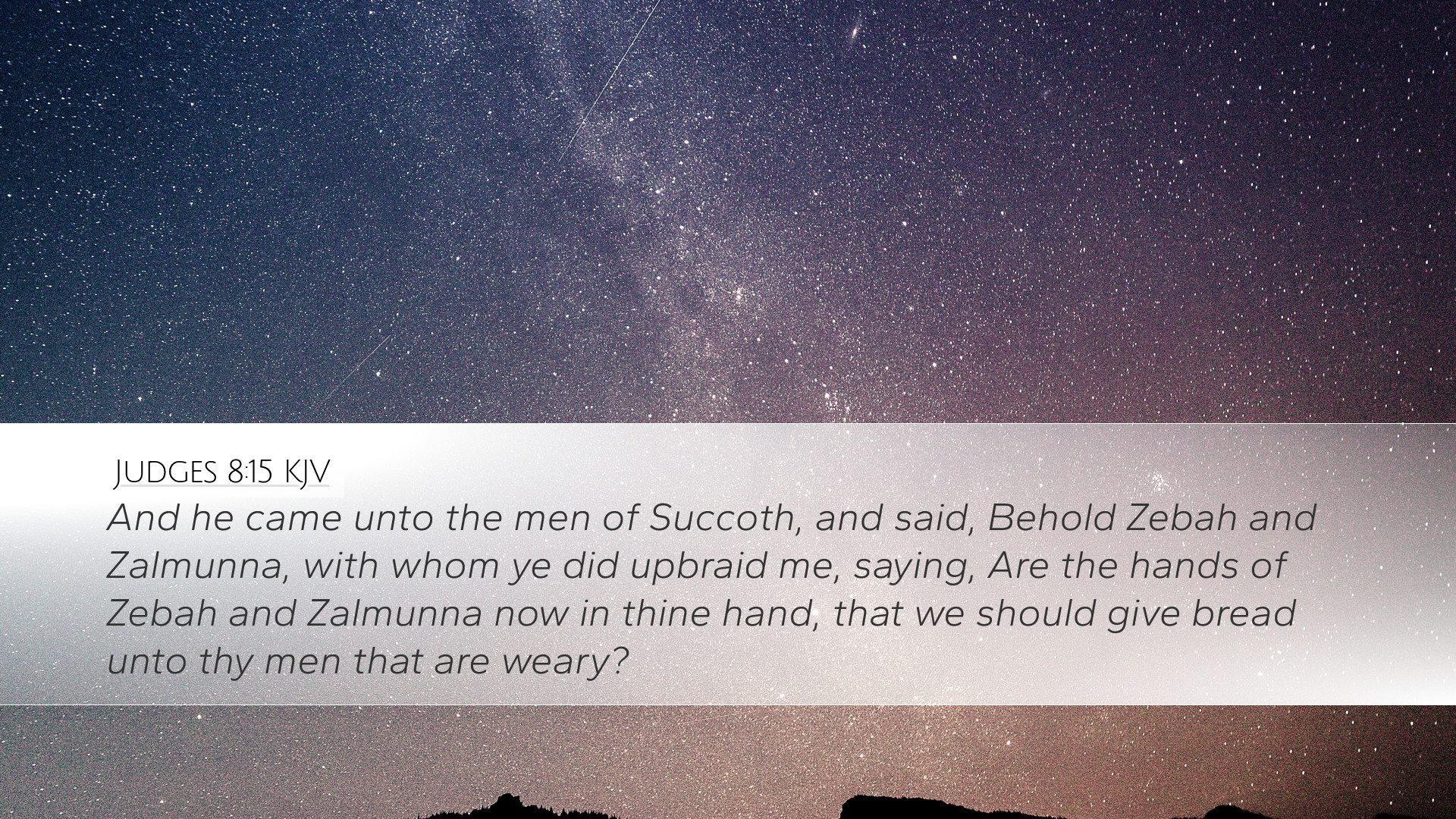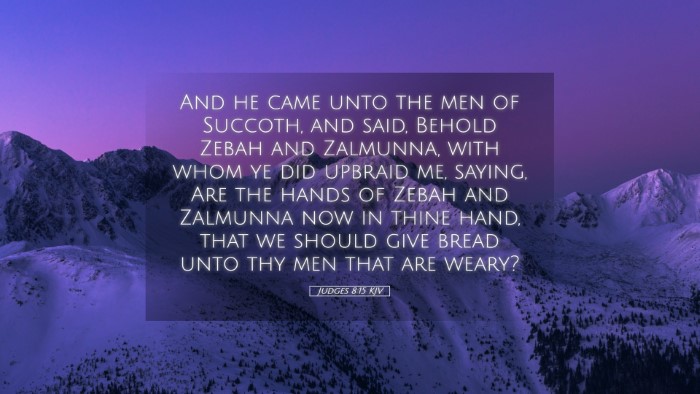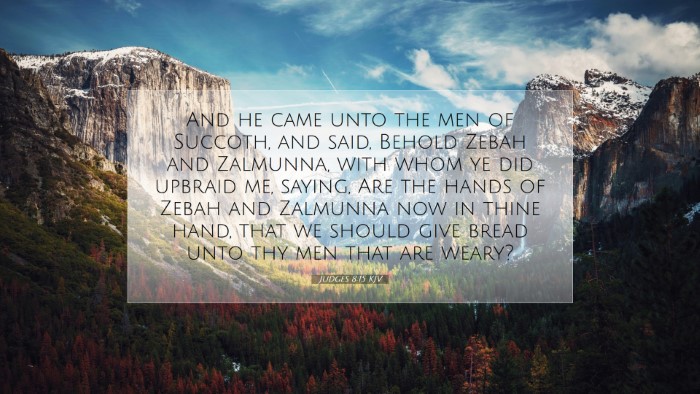Bible Commentary on Judges 8:15
Verse: Judges 8:15 - "And he came unto the men of Succoth, and said, Behold, Zebah and Zalmunna, with whom ye did upbraid me, saying, Are the hands of Zebah and Zalmunna now in thine hand, that we should give bread unto thy men that are weary?"
Contextual Background
The Book of Judges presents a historical account of Israel's national history during the time between Joshua’s conquest of Canaan and the establishment of monarchy. Within this framework, Judges 8 recounts the exploits of Gideon, a major judge, who had strategically defeated the Midianite army.
This particular verse occurs after Gideon's victory. He had pursued the remaining Midianite kings, Zebah and Zalmunna, and sought assistance from the inhabitants of Succoth and Penuel. The refusal of these towns to support Gideon becomes central to this passage and gives insight into themes of leadership, loyalty, and faithfulness.
Exegesis
According to Matthew Henry, Gideon’s query reflects a significant instance of public faith testing. The refusal of the men of Succoth to supply provisions for his exhausted troops serves as a clear indication of their lack of confidence in Gideon’s mission and the impending victory over the Midianites. Gideon’s appeal here shows how leaders are often judged based on communal trust in their divine appointment.
Albert Barnes adds that the phrase “with whom ye did upbraid me” carries an accusatory tone. The men of Succoth had challenged Gideon’s ability to conquer Zebah and Zalmunna, revealing their doubt and perhaps cowardice. Castro, being called to leadership often involves facing skepticism and criticism, and Gideon’s response exemplifies this reality.
Theological Insights
Adam Clarke emphasizes that this passage serves as a cautionary tale about faith in leadership. The inhabitants of Succoth withheld aid due to their unbelief, expressing a broader biblical principle: that those who refuse to support God’s appointed leaders hinder the work of deliverance. Their unwillingness reflects a troubling trend of distrust amidst times of divine intervention, which is echoed throughout scripture.
Studying this moment reveals how the faith community is called to support one another, particularly during trials. Gideon, as God’s chosen leader, signifies the need for mutual encouragement among believers. The faithful should be wary of the skepticism that creates divisions among them, especially when facing spiritual warfare.
Practical Applications
- Trust and Support: Just as Gideon needed support during an ultimate showdown with the Midianites, modern ministries require encouragement and assistance from their communities. Believers must actively seek to uplift one another and support their leaders.
- Faith in Leadership: Leaders are often the first point of call in reflecting God’s design for victory. This passage teaches that congregations should strive to place their faith in God’s appointed leaders, recognizing that God's hand operates through those charged with leadership.
- Overcoming Doubt: The skepticism displayed by Succoth is a reminder for today’s church to confront doubt and fear in the face of God’s commands. Faith and action must go hand in hand; believers are encouraged to step out in faith, regardless of prevailing uncertainties.
Conclusion
Judges 8:15 presents a critical moment of interaction between Gideon and the men of Succoth. This passage challenges us to reflect seriously on our attitudes towards God’s work and His appointed leaders. The message resounds throughout the ages, urging congregations today to trust, support, and believe in the divine guidance offered through leadership in faith. Both pastors and church members can draw profound lessons from Gideon’s experience as they navigate their paths of leadership and community.


